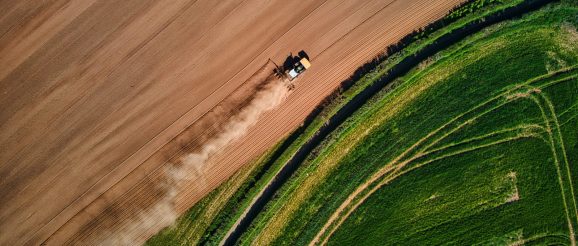Farm-based trials for innovation – Agri-TechE

It might perform well in the lab, but will the … new variety, the robotic weeder, the smart irrigator … work as well in the field?
Farmers are increasingly hosting or participating in trials of new innovations. Defra has also stated its intent to help “put farmers in the driving seat” of R&D supported by various funding streams to incentivise collaboration between farmers and tech developers.
So, Agri-TechE has developed a one-day event to help increase mutual understanding of the underlying principles, help align expectations, and appreciate the challenges of conducting trials in a commercial farm context.
Farm trials provide an opportunity to compare different approaches, such as would this mix of herbs in a grass ley work better as a cover crop to this one? To test novel technology and new practices and to (literally) kick the tyres of innovative machinery.
But if you are new to trials this also presents a number of questions, such as:
These are all to be considered at the event.
Basic principles of farm-based trials – some of the considerations
Farmers, technologists and researchers all want to achieve different things with trials, but there are some basic principles.
Consistent – scientific experiments need to have a clear method, or protocol, so that all the trials are run under the similar conditions. This enables the results from different fields, herds, flocks or farms to be combined or compared.
Repeatable – the experiment needs to achieve the same results if it is repeated, to show that it was a true finding and not just a ‘one-off’.
Control – having similar land or livestock that is treated exactly the same as the trial. The ideal is making it so that the only the factor that changes is the variable being studied. This can be difficult to do on-farm, but often the control is just another part of the same field, or animals or birds without the treatment.
Timing – the trial will require procedures to be done at agreed times, for example having the same date for blood sampling or crop drilling across trials on different farms. If this occurs at a busy time on a working farm the trial can be sacrificed if other things are more urgent. Ahead of time, it might be possible to use a contractor or sequence procedures to avoid pinch points.
Documentation – all procedures need to be documented. There is technology to help in recording, and often this can be automated and will (hopefully!) capture the data in the same format to compared across the trials. How data is collated is another discussion for the planning stage.
Analysis of data – the data needs to be meaningful for the scientist, but also for the farmer. Agreeing “how good is good enough” is a helpful early conversation to have – ensuring expectations are aligned and no-one is disappointed!
At the event ‘On-Farm Research 101’ a number of farmers will be providing learning points from their own trials and researchers will be talking through how to co-design a trial. With input from NIAB, ADAS and leading farmers with experience of collaborating with innovators, whether you are a producer or innovator, this is your chance to hear first-hand about the trial experience!
